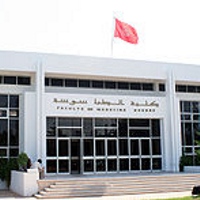Acute Pancreatitis in the Course of Meprobamate Poisoning
Abstract
Context We report a case of massive poisoning with meprobamate leading to acute pancreatitis. Case report A 43-year-old patient with a history of schizophrenia and multiple suicide attempts was admitted to the intensive care unit for severe poisoning with meprobamate (voluntary ingestion of 60 g). On admission, the patient was deeply comatose with low blood pressure and hypothermia. Laboratory analysis revealed leukocytosis and high lipase and amylase serum levels. There was no eosinophilia. Abdominal computed tomography showed pancreatitis grade A. The patient was intubated and ventilated, and intravenous dopamine was infused. The patient regained consciousness and was extubated five days later. Improvement in pancreatic tests was noted several days later. The outcome was favorable. Discussion According to the Naranjo probability scale, meprobamate-induced acute pancreatitis was probable. Acute pancreatitis in meprobamate poisoning is exceptional. The pathogenesis of pancreatitis-induced meprobamate poisoning may be explained by two mechanisms: stimulation of pancreatic secretion secondary to cholinergic activation and pancreatic ductal hypertension. Conclusions The signs of severe meprobamate toxicity are numerous including cardiovascular and central nervous symptoms. Acute pancreatitis should also be added as a possible manifestation of meprobamate poisoning.
Image: Faculty of Medicine of Sousse. Sousse, Tunisia.
Downloads
References
Maddock RK, Bloomer HA, Maddock RK Jr. Meprobamate overdosage. Evaluation of its severity and methods of treatment. JAMA 1967; 201:999-1003. [PMID 6071378]
Allen MD, Greenblatt DJ, Noel BJ. Meprobamate overdosage: a continuing problem. Clin Toxicol 1977; 115:501-15. [PMID 608316]
Charron C, Mekontso-Dessap A, Chergui K, Rabiller A, Jardin F, Vieillard-Baron A. Incidence, causes and prognosis of hypotension related to meprobamate poisoning. Intensive Care Med 2005; 31:1582-6. [PMID 16217659]
Bramness JG, Morland J, Sorlid HK, Rudberg N, Jacobsen D. Carisoprodol intoxications and serotonergic features. Clin Toxicol (Phila) 2005; 43:39-45. [PMID 15732445]
Bourry J, Sainty JM, Roux JJ, Ressiot G. Acute pancreatitis in the course of meprobamate poisoning. Possible role of pressor amine therapy. Nouv Presse Med 1976; 5(30):1918. [PMID 980709]
Savides EP, Hoffbrand BI. Hypothermia, thrombosis, and acute pancreatitis. Br Med J 1974; 1:614. [PMID 4821012]
Rünzi M, Layer P. Etiology, pathogenesis and pathophysiology of acute pancreatitis. Schweiz Med Wochenschr 1997; 127:849-53. [PMID 9289810]
Naranjo CA, Busto U, Sellers EM, Sandor P, Ruiz I, Roberts EA, et al. A method for estimating the probability of adverse drug reactions. Clin Pharmacol Ther 1981; 30:239-45. [PMID 7249508]
Hassan E. Treatment of meprobamate overdose with repeated oral doses of activated charcoal. Ann Emerg Med 1986; 15:73-6. [PMID 3942359]

Copyright (c) 2011 Neila Fathallah, Michele Zamy, Raoudha Slim, Olivier Fain, Houssem Hmouda, Kamel Bouraoui, Chaker Ben Salem, Michel Biour

This work is licensed under a Creative Commons Attribution 4.0 International License.
As a member of Publisher International Linking Association, PILA, iMedPub Group’s JOP follows the Creative Commons Attribution License and Scholars Open Access publishing policies. Journal of the Pancreas is the Council Contributor Member of Council of Science Editors (CSE) and following the CSE slogan Education, Ethics, and Evidence for Editors.